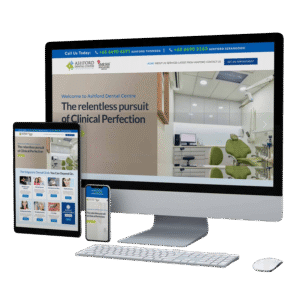Agile methodology has long been associated with software development, but its principles are proving valuable far beyond the tech world. Innerworks International recognizes the growing interest from non-tech industries eager to adopt Agile practices to boost flexibility and efficiency. Understanding how Agile can transform sectors like healthcare, marketing, education, and manufacturing is essential for businesses ready to thrive in a rapidly changing environment.
What is Agile? A Quick Recap
Agile is a project management and work philosophy centered on adaptability, collaboration, and delivering value incrementally. Based on the Agile Manifesto’s core values — such as prioritizing individuals and interactions over processes and tools — Agile encourages continuous improvement. Frameworks like Scrum and Kanban are common in tech but can be tailored for various fields. Innerworks International helps organizations grasp these concepts and apply them successfully outside software development.
Why Non-Tech Industries Should Consider Agile
The business landscape today demands rapid responses to change, and traditional rigid processes often fall short. Non-tech industries are starting to benefit from Agile’s flexibility, improved communication, and customer-focused approach. Innerworks International has seen clients in healthcare streamline patient care workflows, marketing teams run more dynamic campaigns, and manufacturing units reduce bottlenecks by embracing Agile methods. These advantages make Agile a compelling choice for diverse sectors.
Key Challenges When Applying Agile Outside Tech
Transitioning to Agile outside its traditional tech roots is not without hurdles. Many organizations struggle with cultural resistance, as teams accustomed to hierarchical structures may resist the collaborative nature Agile requires. Innerworks International addresses these challenges by providing targeted coaching to shift mindsets. Additionally, lack of Agile expertise, difficulty adapting roles like Scrum Master or Product Owner, and unclear success metrics can complicate implementation, but these obstacles can be overcome with proper guidance.
How to Successfully Implement Agile in Non-Tech Settings
Innerworks International emphasizes starting with Agile’s fundamental principles rather than rigid frameworks. This approach allows customization tailored to each industry’s unique needs. Investing in Agile training and change management is critical to prepare teams for the shift. Pilot projects help demonstrate Agile’s benefits in a controlled environment. Encouraging cross-functional collaboration and open communication further supports success. Using simple tools that support Agile workflows, even if not software-based, also facilitates smooth adoption.
Real-Life Examples of Agile in Non-Tech Industries
Innerworks International has worked with various clients who have implemented Agile outside tech with impressive results. In healthcare, Agile project management improved coordination among medical teams, reducing delays and enhancing patient outcomes. Marketing agencies adopted Agile to increase campaign agility and respond swiftly to market feedback. Manufacturing firms used Kanban boards to optimize production schedules. These examples highlight Agile’s adaptability and the practical benefits businesses can expect.
Common Misconceptions About Agile in Non-Tech
Many believe Agile is exclusively for software or that it lacks discipline and planning. Innerworks International helps debunk these myths by showing that Agile requires structured processes and careful prioritization, just applied more flexibly. Another misconception is that Agile is a one-size-fits-all fix; however, successful Agile adoption depends on tailoring practices to fit the organization’s culture and objectives. Understanding these realities ensures a more effective Agile journey.
Future Trends: Agile Beyond Technology
Agile’s expansion into non-tech industries shows no signs of slowing. Innerworks International observes increasing integration of Agile with complementary methodologies like Lean and Design Thinking to drive innovation and resilience. Businesses adopting Agile practices are better positioned to adapt to market disruptions and customer needs. As Agile evolves, it will continue empowering organizations across sectors to maintain competitive advantage and foster continuous growth.
Takeaway
Agile offers powerful tools and mindsets for non-tech industries to become more adaptable, collaborative, and customer-focused. Innerworks International invites companies to explore Agile tailored to their specific context and challenges. Embracing Agile can unlock new levels of productivity and innovation. If you’re ready to start your Agile transformation or want to learn more, Innerworks International is here to guide you every step of the way.








